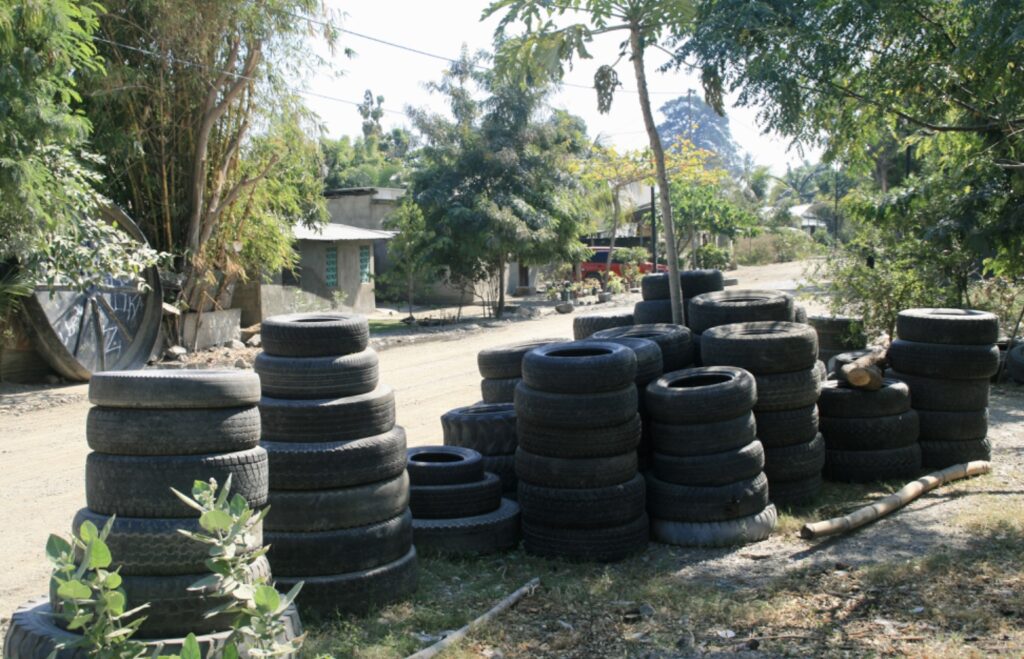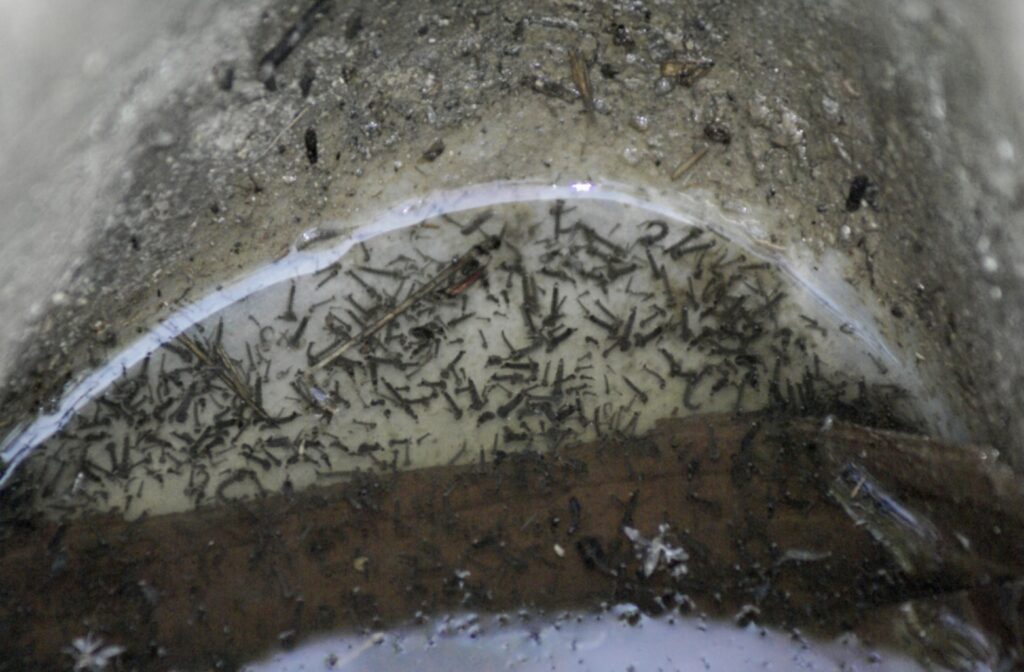Text by Henrylito D. Tacio
Photos: WHO
When there’s rain, there’s water. When there’s water, there’s a mosquito. When there’s a mosquito, there’s dengue.
Since the last quarter of the year in the Philippines is the rainy season, expect more cases of dengue, too. After all, the mosquitoes that carry the dengue virus love to proliferate in clean water, particularly those thrown cans, discarded tires, and pails (where rainwater is being stocked).
One Davao scribe describes mosquitoes as “terrorists on the loose.” They attack any time of the day. They don’t have any weapons, but their bite is as deadly as the gun. There’s no blood that will spill out but watch out; they are indeed lethal.
These mosquitoes carry different kinds of viruses. The Aedes aegypti, for instance, once infected with the dengue virus, transfers it to any human being through a single bite. It bites only during the daytime, but its peak biting time is after sunrise and at dusk – especially one hour before sunset.
However, not all Aedes aegypti mosquitoes are carriers of the dengue virus, but only those that have bitten people infected with the virus. Once infected, a mosquito remains infective for life, transmitting the virus to susceptible individuals during probing and blood-feeding.
When a person is bitten by an infected mosquito, the dengue virus is deposited in the person’s bloodstream. The time between the bite of a dengue-carrying mosquito and the start of dengue fever symptoms averages four to six days, with a range of three to 14 days. An infected person can be a source of the dengue virus for mosquitoes for about six days.
But what’s alarming is the fact that dengue might be mistaken for coronavirus disease 2019 (COVID-19).
“As dengue cases rise during the COVID-19 pandemic, increased caution is needed from medical practitioners to avoid instances of misdiagnosis,” pointed out health experts.
Common symptoms shared by dengue and COVID-19 are fever, muscle, and joint pains, headache, and fatigue. “With symptoms similar to COVID-19, dengue remains as one of the top illnesses we should always be mindful of,” urged health experts.
Vomiting (may include blood), swollen glands, rashes, severe abdominal pain, and bleeding gums are symptoms exclusive to dengue. Symptoms exclusive to COVID-19 include diarrhea, loss of taste and smell, lesions on toes, bluish lips or face, and hemoptysis (the spitting of blood that originated in the lungs or bronchial tubes).
Like death and taxes, dengue exempts no one: fat or thin, ugly or beautiful, rich or poor, educated and illiterate. Children, who are exposed to open areas while playing, are more prone to dengue, although adults are not spared from infection.
I had a friend who was a lawyer. He was based in Manila, but at one time, he went to Baguio, where he contracted dengue. A few days after being bitten, he suffered a high fever, severe headache, and pain behind the eyes. There was also an outbreak of rashes in some parts of his body.
From Baguio, he was brought to Manila. But it was already too late. He suffered a hemorrhage in the liver and died three weeks after being confined in one of the well-known hospitals in Makati City.

Ideal breeding site (WHO J Gusmao) 
Breeding site (WHO J Gusmao)
Even doctors die from dengue, too! There was a case of a lady physician whose daughter suffered from dengue. Unknowingly, a mosquito which bit her daughter had bitten the doctor. A few days after her daughter died, as a result of dengue, the doctor also showed manifestations of having dengue. She also died of the same disease.
Dengue actually doesn’t kill. It’s when dengue hemorrhagic fever (DHF) takes over that it becomes lethal. Some five percent of DHF cases are fatal; without proper treatment, the rate rises up to 15 percent, some studies show.
There’s already a dengue vaccine available, but most Filipinos are not using it because of the bad experience we had with it. Some children reportedly died after being injected with the vaccine.
But there’s good news. The Tuklas Lunas program of the Department of Science and Technology (DOST) is conducting a clinical trial of a herbal capsule against dengue. Costing P12 million, the trial is being implemented by Pharmalytics Corporation.
The randomized, double-blind, placebo-controlled study – which is being conducted in Cavite – aims to determine the efficacy and safety of an herbal capsule when taken orally by adults with dengue fever showing no warning signs.
Each fixed-dose capsule combines the ability of “tawa-tawa” (Euphorbia hirta) and “banaba” (Lagerstroemia speciosa) to increase platelet count with the immune-boosting and anti-inflammatory properties of “luya” (Zingiber officinale).
The clinical trial is funded by the DOST through the Philippine Council for Health Research and Development (PCHRD).
“Once proven safe and effective, the herbal capsule will be the first definitive treatment for dengue,” DOST said in a statement. “It could pave the way for use in cases showing warning signs and even in severe types.”
“Dengue is the world’s most important viral disease transmitted by mosquitoes,” says Dr. Duane Gubler, health administrator of the US Centers for Disease Control and Prevention (CDC).
The mosquitoes thrive in areas close to the human population. “The dengue mosquito lays its eggs in water-filled containers inside the house and surrounding areas of dwellings (this includes non-used bottles, containers, discarded waste, and tires, among others which hold water,” says the World Health Organization (WHO).
The eggs hatch when in contact with water. Eggs can withstand very dry conditions and survive for months. Female mosquitoes lay dozens of eggs up to 5 times during their lifetime.
Adult mosquitoes “usually” rest indoors in dark areas (closets, under beds, behind curtains). Here, it is protected from wind, rain, and most predators, which increases its life expectancy and the probability that it will live long enough to pick up a virus from one person and pass it on to the next.
The best protection against dengue is, of course, not to be bitten by the mosquito carrying the virus. Watch out: Dengue is here!

